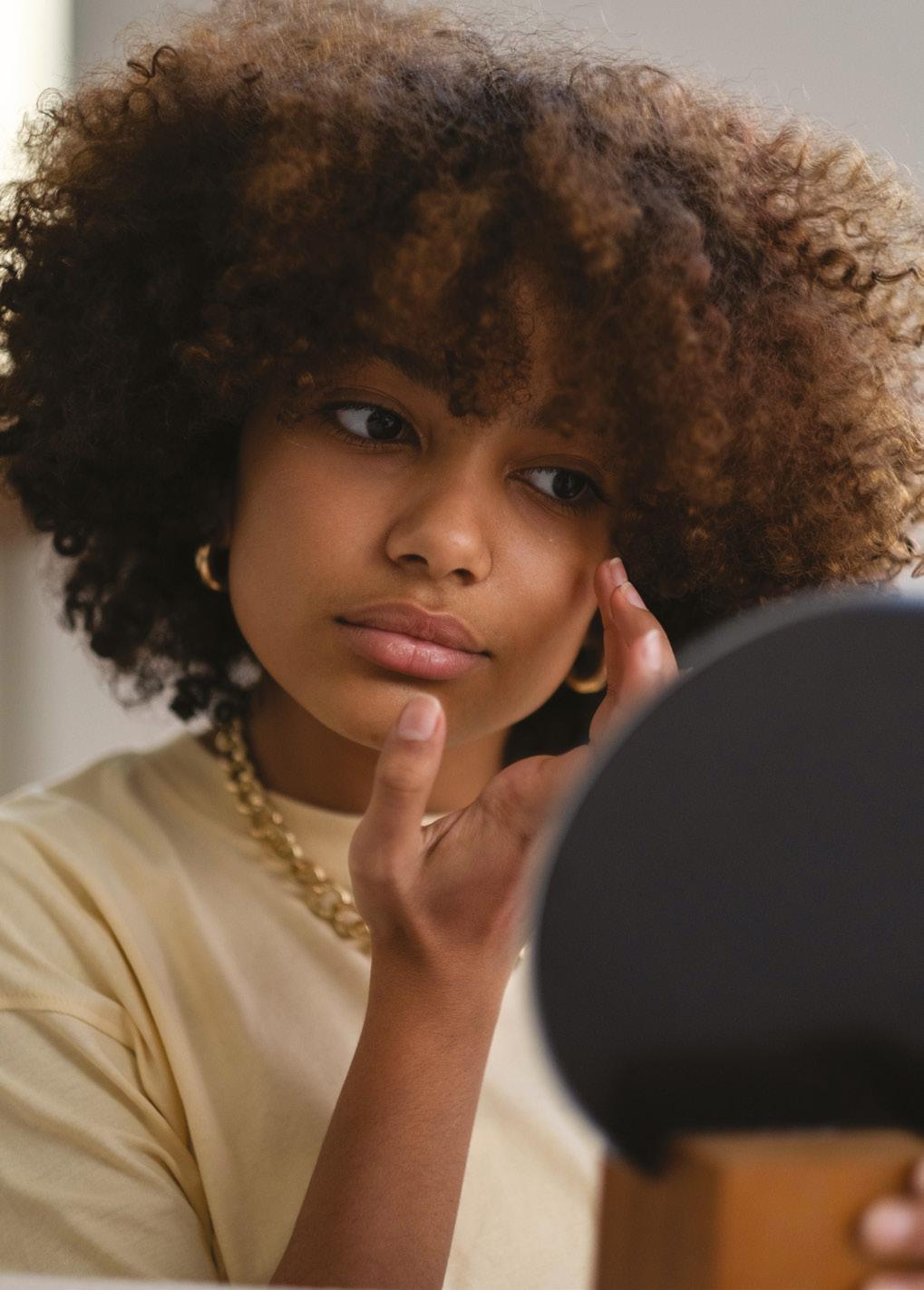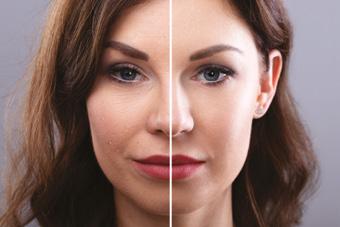
5 minute read
BLUSH Investigates: Retouched photos
Realistic beauty 14 BLUSH | SUMMER 2022
WHETHER it’s bigger lips, smoother skin, or a flatter stomach on your mind, photo editing is so seamless these days that as you scroll through your feed, it’s almost impossible to tell the difference between reality and digital ‘tweakments’. That’s not to say, however, that the desire for these changes to our appearances hasn’t stemmed from a history of influencers, cultural appropriation, and the desire to rack up those all-important likes on our social media platforms. When it’s becoming increasingly easier to make a career online based on looks alone, you can see why it’s a temptation for many. In fact, a recent survey by The Harley Medical Group found that 53% of women concluded seeing photographs of themselves to negatively affect their confidence in their appearance, and 41% edit their pictures to post on social media. More worryingly, 46% of women would consider changing their appearance with cosmetic surgery. blushmagazine.org.uk BLUSH | SUMMER 2022 15

There was a bill proposed by MPs in the UK to make it compulsory for people to state if they were posting altered images - but it never made its way through Parliament. Meanwhile, over in Norway, it’s now compulsory to declare edited images, following the success of similar rules in France and Israel. “I would suggest that every teen that has come to seek help for self-esteem and social issues, in the last five years has issues with cyber bullying on social media” says leading psychiatrist, Dr Alison McClymont. “A law encourages transparency, and it assists those who are struggling with body dysmorphia to gain a sense of perspective. It normalises all bodies and it celebrates diversity. I think the rise body image and eating disorders is a direct reflection of social media.” BLUSH INVESTIGATES… SHOULD IT BE THE LAW TO DECLARE RETOUCHED PHOTOS? Since Norway took the leap in 2021, questions surround whether it promotes a more realistic beauty standard or is just a shortcut to covering up a wider problem – and if the UK should be following suitRealistic beauty BLUSH | BEAUTY

The new laws (set to come into effect in July 2022) were passed in a change to Norway’s Marketing Act, and aim to help reduce pressure in society due to “idealised people in advertising”.
A message on the Norwegian government’s website reads: “Among other things, a duty is introduced to mark retouched or otherwise manipulated advertising when this means that the person’s body in the advertisements deviates from reality in terms of body shape, size and skin.” Violations of the rules could result in hefty fines.
Although it may sound like a good idea on the surface, not everyone is in favour however.
Diren Kartal is an influencer and online fitness coach, and believes that it’s the responsibility of those in the public eye to be held accountable and come across as authentic. “By showing up daily on my social media platforms being myself, raw and un-edited is hopefully going to teach my audience to surround yourself with people who love and respect you for exactly who you are and not something that is fake” he told us.
“Re-touching photos comes from feeling insecure, you aren’t working on the core issue if you put a law in place, people will find other ways.”
The idea has left many questioning whether the move is just masking a bigger problem surrounding body image, and by drawing attention to doctored images, we could be leaving users to dissect what was changed about the person and build a new kind of comparison culture. Some say there could even be the potential for surgical procedure numbers among the younger generation to rise, in a bid to make their online image a reality and avoid having to label it as edited.
Diren adds, “This whole culture is getting worse. If you look at filters on social media there’s so much pressure to look how you may have looked like in a point of your life when you were leaner, fitter, or thinner. Some influencers are even

paying editors to Photoshop their photos before posting on social media - the levels people are going to is really quite worrying.”
Alternative solutions could come from the platforms themselves. In 2019, Instagram and Facebook announced that users under the age of 18 would be blocked from viewing posts focused on weight loss or other appearance-altering procedures. Pinterest recently went one step further and banned weight loss ads in their entirety.
Social media influencers have already been told they can no longer use ‘misleading’ filters on beauty adverts, after the UK’s Advertising Standards Authority (ASA) ruled in 2021, but it’s still a far-cry from the hundreds of airbrushed posts we see every day.
Dr. Luke Evans MP, drew up a bill which backed bringing Norway’s approach to labelling to the UK. Dr. Evans, who is a member of the Health and Social Care Committee and was previously a GP said: “In my role as a GP before becoming an MP, I saw first-hand how social media use can have a real, tangible and dangerous impact on eating disorders and body confidence issues.
“We know that 1.25 million people in the UK are estimated to have an eating disorder, with around one million people using steroids to bulk up. I’m keen to see real change in the law as a first step to help tackle this problem.
“My proposed legislation is not, however, about holding individuals to account - so if you want to remove a blemish from your wedding photos, or add a nice filter to your photos, then you would absolutely still be free to do that without adding a disclaimer.”
But despite pushing for action – Dr. Evans hopes that his proposed bill never has to come into play, adding, “My hope is that advertisers, broadcasters and publishers simply stop feeling the need to digitally alter body shapes in their adverts.
“By not digitally manipulating their images, brands and organisations have the opportunity to make a real difference to body confidence issues, by not depicting body shapes which, no matter how hard you work, simply cannot be achieved.”
Whether it’s by law or a shift in societies attitude towards beauty onscreen vs real life, it’s clear that a world without the added pressure of perfectly airbrushed skin and year-round toned abs is one that we’d all want to live in.










